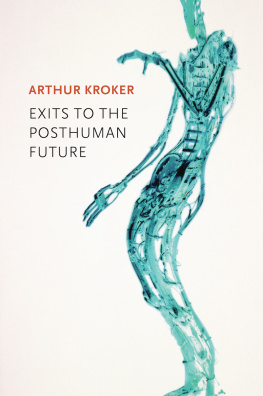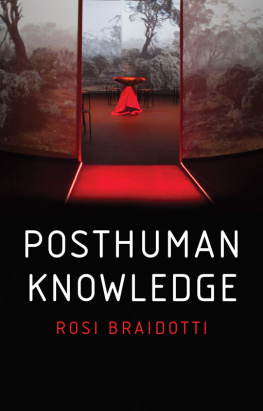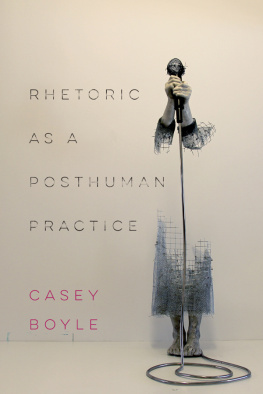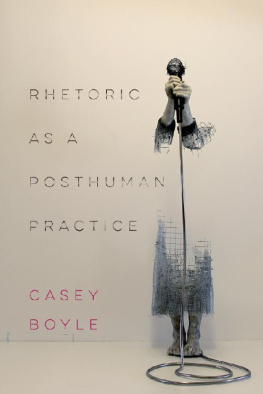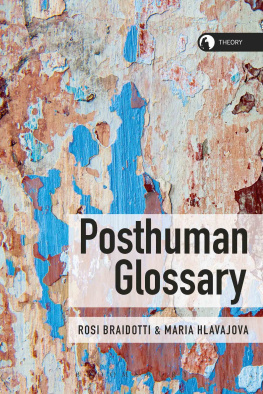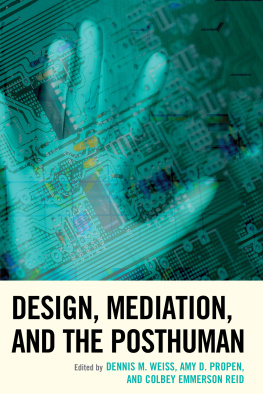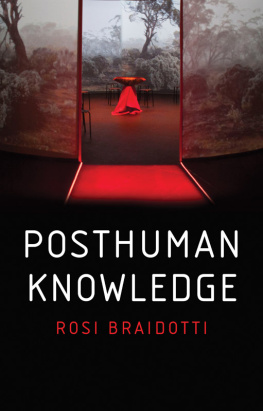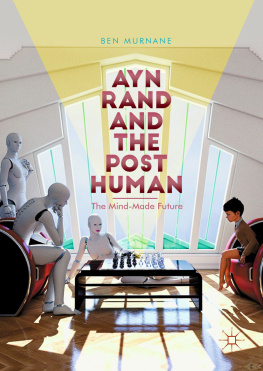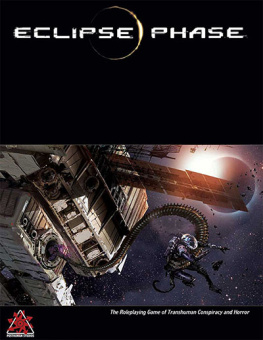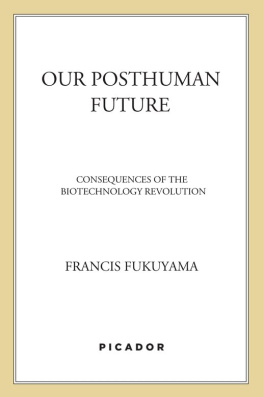
Table of Contents
Copyright Arthur Kroker 2014
The right of Arthur Kroker to be identified as Author of this Work has been asserted in accordance with the UK Copyright, Designs and Patents Act 1988.
First published in 2014 by Polity Press
Polity Press
65 Bridge Street
Cambridge CB2 1UR, UK
Polity Press
350 Main Street
Malden, MA 02148, USA
All rights reserved. Except for the quotation of short passages for the purpose of criticism and review, no part of this publication may be reproduced, stored in a retrieval system, or transmitted, in any form or by any means, electronic, mechanical, photocopying, recording or otherwise, without the prior permission of the publisher.
ISBN-13: 978-0-7456-7162-8
ISBN-13: 978-0-7456-7163-5(pb)
ISBN-13: 978-0-7456-8225-9(epub)
ISBN-13: 978-0-7456-8224-2(mobi)
A catalogue record for this book is available from the British Library.
The publisher has used its best endeavours to ensure that the URLs for external websites referred to in this book are correct and active at the time of going to press. However, the publisher has no responsibility for the websites and can make no guarantee that a site will remain live or that the content is or will remain appropriate.
Every effort has been made to trace all copyright holders, but if any have been inadvertently overlooked the publisher will be pleased to include any necessary credits in any subsequent reprint or edition.
For further information on Polity, visit our website: www.politybooks.com
Acknowledgments
The intellectual development of Exits to the Posthuman Future benefited immensely not only from close readings of the manuscript by Marilouise Kroker but also, more importantly, from her innovative contributions to theorizing the fate of the body in a contemporary culture typified by code drift and the posthuman imaginary. In every respect, the manuscript has been deeply shaped by our conversations and collaborations over many years, whether co-editing CTheory, pursuing innovative research projects at the Pacific Centre for Technology and Culture, or working collaboratively on books, articles, videos, and performances.
I am deeply appreciative of the superb editorial skills of Joe Devanny, my editor at Polity Press, as well as of the insightful comments offered by anonymous reviewers and the editorial committee at Polity.
The preparation of the manuscript was greatly facilitated by research support from the Social Sciences and Humanities Research Council of Canada (Digital Inflections). Equally, my appointment as a Canada Research Chair in Technology, Culture, and Theory at the University of Victoria provided an innovative multidisciplinary intellectual environment for exploring the digital future. I would also like to acknowledge the contributions of Clare Ansell, Polity's Senior Production Editor, and the careful copy-editing work of Gail Ferguson.
Introduction:
Trajectories of the Posthuman
Trolley to Tijuana and transit of Venus
I'm in downtown San Diego, just about to board the trolley to Tijuana, on a day, unlike most days, that is clearly marked by the spectral signs of cosmology because in far-off galactic space, Venus prepares to transit the sun and, in that transit, for the briefest of periods makes itself visible to the shielded human eye. This astronomical event last occurred in 1882 and will only occur again in 2117. And, so, I'm on a trolley to Tijuana, bracketed by astronomy between the past and the unknown, and certainly unknowable, future of the twenty-second century, with the spectral sign of Venus in transit across the fires of the sun and the earthbound signs of that trolley ride to the borderland following its own low visibility, perhaps even minoritarian, transit across the bright sunshine of the California technological way.
Following the Spanish philosopher Jos Ortega y Gasset's fateful insight that I am I in the human circumstance and the human circumstance is I, I ask myself this question enigmatic about my present circumstance on this day of cosmology: What is the connection, if any, between the trolley to Tijuana and the transit of Venus?
Now, the trolley to Tijuana is a down-to-earth story, about migrant workers from Tijuana who begin lining up at 4 am each morning in order to catch the trolley to the houses and stores and construction camps of San Diego. There's a lot of humiliated necessity in those early-morning border crossings. All the immense wealth, restless energy, and sheer disciplined willpower of the California Way pushed to the border, and just stopped with walls of surveillance running into the sea and pitilessness running into the heart. Like everything else on the border, the trolley to Tijuana is a kind of strange fold in the space-time of two cultures, a site of possible cultural intersections that don't really happen, broken mediations, and bodies on the move, some perhaps upward bound, but most disappearing into the routines of daily labor.
And the transit of Venus? That's a different (astronomical) matter altogether. Not just its rarity, although the event dazzles with the fact that it won't happen again for another century. A heavenly messenger linking the twenty-first and twenty-second centuries. Nor even the fact that the transit of Venus cannot be viewed directly, but only with a heavy filter to shield your eyes. But use that filter and the occasion is one of wonderment, that vision of the planet Venus tracking across the face of the sun. In this, the most scientific of times, the event has been stripped of its mystery, reduced to the language of scientific precision or perhaps to celestial celebrity status pumped up by the mass media as another passing interest story for the day an astronomical punctuation, in this case, supposedly signifying nothing. But still, I am I in the human circumstance and the human circumstance is I and there's that irrepressible doubled sense of awe at being witness to the motion of the planets and the stars but also something else, an inexpressible, and certainly prohibited, feeling that what is really being witnessed is something less scientific than cosmological. The transit of Venus is an omen, but an omen of what?
Living at the tip of the posthuman
We are already living at the accelerating tip of the posthuman future. Seemingly everywhere, the highly experimental, definitely utopian language of technology has delivered us to a future that is unmistakably novel, from the hybrid experiments of genetic engineering, the viral growth of increasingly complex databases, the massive diffusion of social networking technologies to enthusiastic pronouncements that the layered world of virtual augmentation represents the next stage of the fully realized technological society. Yet, for all that, contemporary society is also marked by a growing uncertainty concerning both the ultimate ends of technological innovation and the ways of understanding and negotiating the uncertain digital future.
Digitally, the onrushing adventure of technology with its coding of seemingly every element of social existence and utopian ambitions towards global connectivity is met by a counterbalancing fascination with images of the abject, the uncanny, the liminal in popular imagination, accompanied by an increasing focus in mass media, with the spectral world of zombies, clones, avatars, and aliens. The real world of digital technology might pursue the aims of greater national security, economic austerity, and highly centralized corporate governance of networked communication, but the popular world of cultural imagination seems to be increasingly preoccupied with fantasy novels, stories of vampire love, and online battles among zombies, robots, and always-besieged defenders of a lost humanity.

